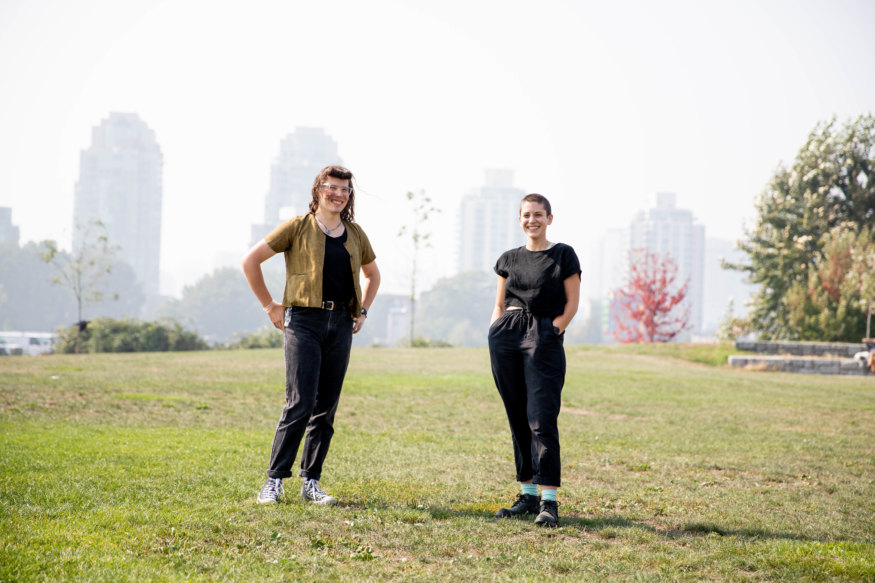‘Pocket Change’ Celebrates the Worldmaking Power of the Pocket
Designers and ECU students Morgan Martino and Naomi Boyd take aim at systemic inequity with a focus on how textiles can be a site for reclaiming agency.
The story of the humble pocket — that secretive, private space in your clothing which acts as workhorse, piggybank or even sanctuary — is the centuries-old story of material and cultural economies, says Morgan Martino, a fourth year Industrial Design at Emily Carr and research assistant for the Health Design Lab and Graphic Research Unit.
That story, she adds, doesn’t just exist at the intersection of socioeconomics and design — it’s personal.
“It seems as though everyone has at least one story about pockets, whether it’s about losing keys or finding an old grocery list, sharing space for rocks and candy or just a space to hide fidgeting hands,” Morgan says.
“Pockets become a vessel for these memories, capturing their emotions and senses. They can lead to blissful nostalgia or to righteous anger. These stories and memories act as a gateway to discourses around larger systemic forces (consumerism, class, gender, identity), and allow people to see how they relate to them and think about what they would like to change about them in tangible ways. By asking people to think about what an ideal pocket for them would look and feel like, it gets them to think about the world they want that pocket to live in.”
Morgan forms one half of a project team called Pocket Change, alongside fellow fourth-year Industrial Design student and Writers’ Exchange literacy mentor Naomi Boyd. As part of the Shumka Centre for Creative Entrepreneurship’s 2020 Satellite program (Satellite x DESIS), the pair have been working under the mentorship of design activist and fashion and sustainability pioneer Kate Fletcher, a Research Professor of Sustainability, Design, Fashion at the Centre for Sustainable Fashion, University of the Arts London, and co-founder of the Union of Concerned Researchers in Fashion.
“Being able to make and mend your own [clothing] items using materials you already own or that are easily accessible gives you power.” – Morgan Martino
 Morgan Martino (L) and Naomi Boyd (R) of ‘Pocket Change,’ in Vancouver’s Trillum Park in September, 2020. Photo by Perrin Grauer / Emily Carr University.
Morgan Martino (L) and Naomi Boyd (R) of ‘Pocket Change,’ in Vancouver’s Trillum Park in September, 2020. Photo by Perrin Grauer / Emily Carr University.
Pocket Change is “an opportunity to engage others in dialogues related to experience of gender, class, place and the environment through accessible and shareable design activities centering around pocket equity,” according to the Shumka Centre. It organizes activities that “explore the repair/reuse/redesign of pre-existing artifacts and materials as a sustainable practice, rather than relying on the consumption of new products. They will be celebrations of identity sharing, storytelling and worldmaking through textiles.”
Find the whole article on Emily Carr University News
